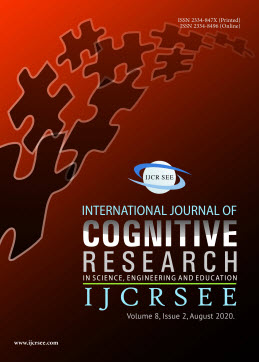PEER ASSESSMENT OF TEACHER PERFORMANCE. WHAT WORKS IN TEACHER EDUCATION?
PEER ASSESSMENT OF TEACHER PERFORMANCE. WHAT WORKS IN TEACHER EDUCATION?
Author(s): Valeria M. Cabello, Keith J. ToppingSubject(s): Higher Education
Published by: Удружење за развој науке, инжењерства и образовања
Keywords: deviant online behavior; minors; young adults; social networks; risk factors; vulnerability; resources; risk assessment
Summary/Abstract: Peer assessment is increasingly used in schools and higher education, especially in health education. However, there remains insufficient evidence that peer assessment conditions are beneficial for teacher education. In this article, empirical research literature on peer assessment of pre-service teaching performance are reviewed. The articles were from the ERIC and Scopus databases, from 2002 to 2020. Only fifteen studies met the selection criteria described herein. The studies differed in the type of assessment used but converged toward the conclusion that incorporating peer assessment into different stages of teacher education was appropriate and worthwhile. We discuss the theoretical perspectives on why peer assessment might work in teacher education, pointing out practical implications for decision-makers in this field. Finally, recommendations and constraints for researching and implementing peer assessment are discussed from the perspective of innovation within pre-service teacher education.
Journal: International Journal of Cognitive Research in Science, Engineering and Education (IJCRSEE)
- Issue Year: 8/2020
- Issue No: 2
- Page Range: 121-132
- Page Count: 12
- Language: English

